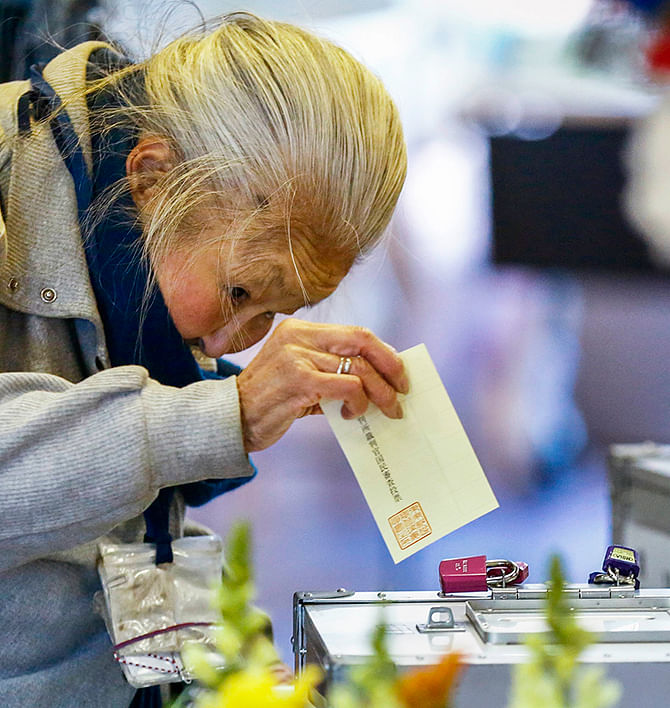Japan exit polls suggest Abe victory
Japan exit polls suggest Abe victory

Exit polls suggest that the party of Japanese Prime Minister Shinzo Abe has secured a large majority in the country's parliamentary elections.
Abe had called a snap poll to boost support for his economic reforms.
He was elected in 2012 and has tried to revive the economy by raising public spending and printing money.
After an initial burst of growth, Japan slipped back into recession in the second half of this year.
Japan is the third-largest economy in the world, according to the World Bank, but it has struggled in recent years.
However, Abe has insisted that his policies, known as "Abenomics", can get Japan back on track.
"I promise to make Japan a country that can shine again at the centre of the world," he said in a recent campaign speech.
He has vowed to help more Japanese women enter and remain in employment by tightening anti-discrimination laws and setting employment targets.
He has also promised to amend the law to allow the Japanese military to engage in collective self-defence alongside allies who are threatened.
Economists say an increase in sales tax from 5 percent to 8 percent in April knocked consumer spending and helped to halt growth.
The tax increase was legislated by the previous government in 2012 to curb Japan's huge public debt, which is the highest among developed nations.
Abe called the election to seek a mandate to delay a second increase in the tax to 10 percent, scheduled for 2015.
Voters were choosing who sits in the 475-seat lower house of Japan's parliament, the Diet.
Several surveys in recent weeks had pointed to a win for Abe's Liberal Democratic Party.
Observers said this was partly due to the lack of a real political alternative, with the opposition in disarray.
The Banri Kaieda-led opposition Democratic Party is expected to pick up a handful of seats, but not enough to affect the parliamentary balance.
A total of 1,191 candidates are competing for 475 seats.